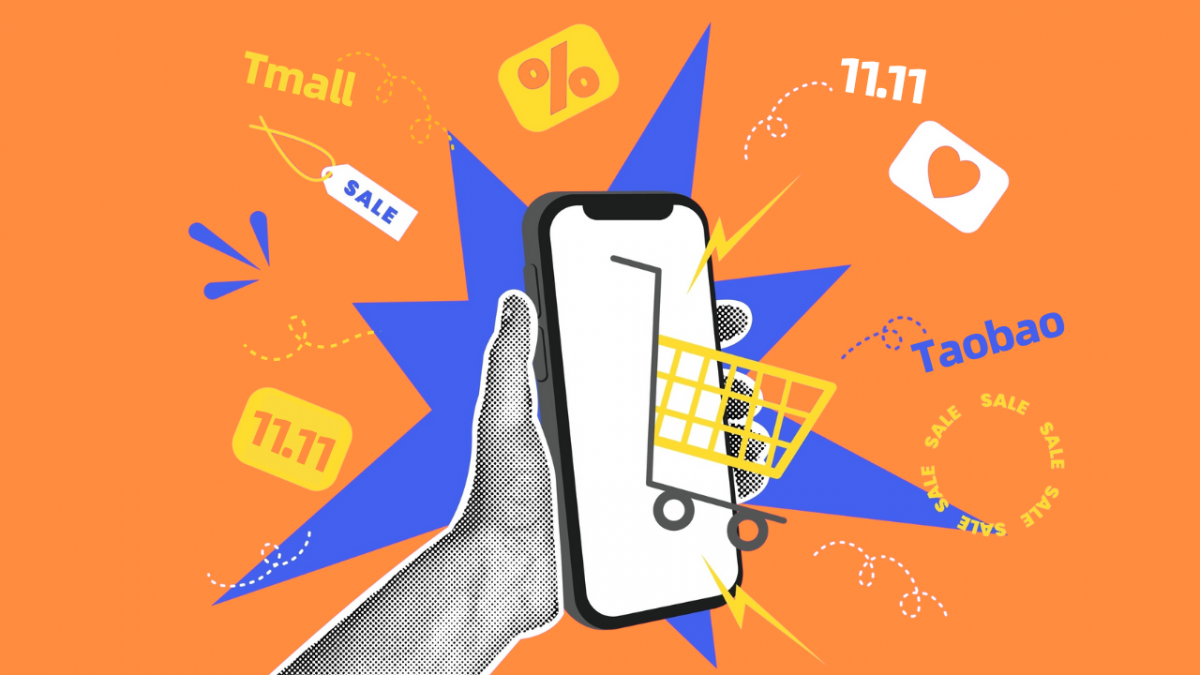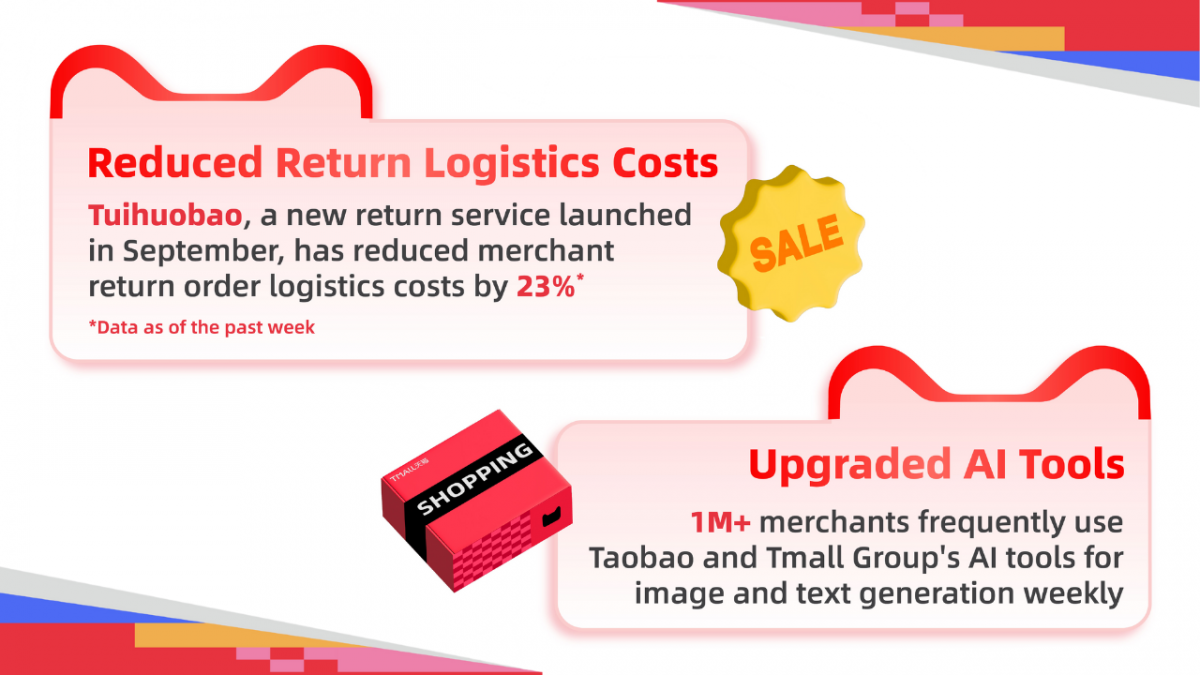
Photo credit: Alibaba Group
The 2024 11.11 Global Shopping Festival kicked off on Monday with flurry of user-centric incentives and merchant support measures on Alibaba Group’s e-commerce platforms Taobao and Tmall.
Consumers and brands alike will benefit from RMB30 billion ($4.3 billion) in vouchers and subsidies over the course of two shopping windows in late October and early November.
11.11, also known as Double 11 or Singles’ Day, has traditionally been a barometer of consumer confidence in the world’s second-largest economy – and this year will be no different as around 300,000 brands take to Tmall alone.
“This year’s 11.11 is unfolding as Chinese consumer sentiment is improving. We are making unprecedented investments to incentivize our users and support our merchants,” Bo Liu, Vice President of Alibaba Group and President of Tmall, said in a statement.
Consumer confidence, particularly among younger generations in lower-tier cities, remains relatively high, according to a recent report by consultancy McKinsey.
Taobao and Tmall Group (TTG) aims to capitalize on these pockets of optimism and spending potential with a host of initiatives.
Investments include RMB10 billion to boost cross-platform traffic and the use of artificial intelligence-powered tools to support brands and merchants taking part in 11.11 this year.
Additionally, a strategic focus on SMEs and high-quality growth aligns with broader trends of selective consumer spending, where people are prioritizing value, especially for products that balance price and quality.

Enhanced User Benefits
Alibaba is betting big on consumer engagement during this period, offering a mix of discounts and benefits aimed at stimulating purchasing behavior across its vast ecosystem of brands and sellers.
Presales for the 2024 11.11 festival started at 8:00 PM Beijing time on Oct. 14, giving shoppers a chance to stock their carts ahead of two checkout windows from Oct. 21 to 24, and from Oct. 31 to Nov. 11.
This year, Alibaba is doubling down on its 88VIP membership program, which boasts over 42 million paying members. These users will receive exclusive benefits such as interest-free installment plans, premium return services, and high-value coupons worth some RMB20 billion, a significant increase from the previous year.
Tmall and Taobao aren’t having all the fun. Taobao Live, a livestreaming commerce platform housed within the Taobao app, will distribute RMB2 billion worth of red packets in collaboration with merchants.
Consumers can collect up to RMB1,500 daily by participating in live-stream shopping sessions, and enjoy the company’s popular RMB10 Billion Subsidy program with discounts of up to 80% on many branded products.
And across Taobao and Tmall, shopping is getting even easier thanks to the recent integration of WeChat Pay as a payment option for mainland Chinese users.
Support for Merchants
On the merchant side, TTG is taking significant steps to ease operational costs and boost sales.
The platform will host around 300,000 brands and a multitude of small- and medium-sized enterprises (SMEs), with the number of products on offer already surpassing expectations.
Notably, the number of newly launched brands on Tmall surged by 70% in the third quarter of 2024, a testament to the platform’s efforts to create an optimized, cost-effective environment for sellers.
To support these merchants, TTG is allocating RMB10 billion to cross-platform traffic initiatives and an additional RMB3 billion to subsidize marketing expenses. The company has also waived commissions for Taobao store owners participating in 11.11, offering further financial relief to SMEs.

In addition, TTG has upgraded its AI-powered analytics and content generation tools to improve merchants’ efficiency. Over one million merchants are now using AI tools for image and text generation, reducing their reliance on costly in-house design teams.
Alibaba has also introduced measures to reduce logistics costs, particularly for product returns, which can be a significant expense for merchants.
A new return service launched in September, Tuihuobao, has already served 1 million merchants, reducing return logistics costs by 23%.




